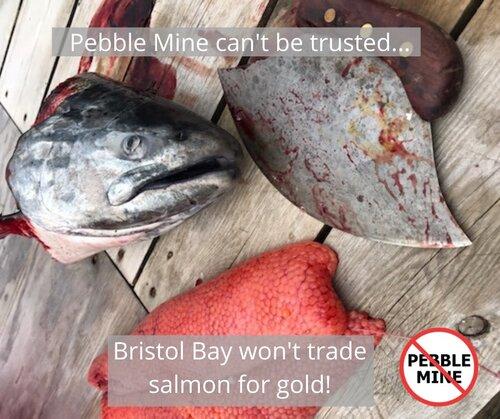
Pebble in a time of COVID
Greed drives the Pebble project, and the pandemic hasn’t changed that.
Pebble’s “business as always” approach to hunkering down includes scrounging for cash, trying to buy local support, and sending out PR this week touting its close and fruitful relationship with the U.S. Army Corps of Engineers and other federal agencies ahead of the expected July 24 release of the Army Corps’ final environmental impact statement.
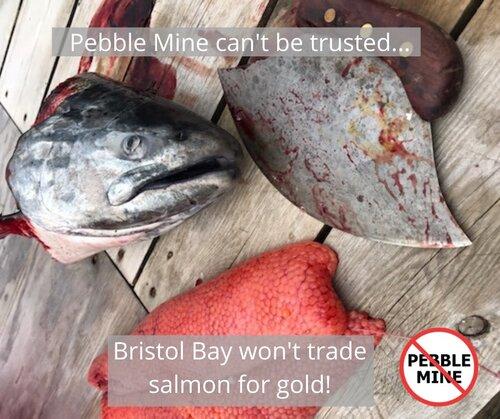
Again and again, Pebble Limited Partnership, the Alaska face of the Canadian company Northern Dynasty, refuses to heed science and traditional knowledge, or to listen to those who rely on healthy Bristol Bay water, salmon and communities for their ways of life, livelihoods, and well-being. Agency and independent scientists have repeatedly shown how this toxic mine would destroy sustainable fisheries essential to the lives of Alaskans.
There’s a lot at stake, and a lot going on underfoot, so here’s a rundown of Pebble news and actions in a time of COVID.
Surprise! A new route
In May, the Army Corps announced its preference for a new transportation corridor called the “northern route”—an alternative that wasn’t emphasized during the public review. The northern route poses substantial risks to salmon-bearing streams and would make it much easier for the mine to expand, allowing Pebble to mine far beyond the 20 years it is seeking a permit for.
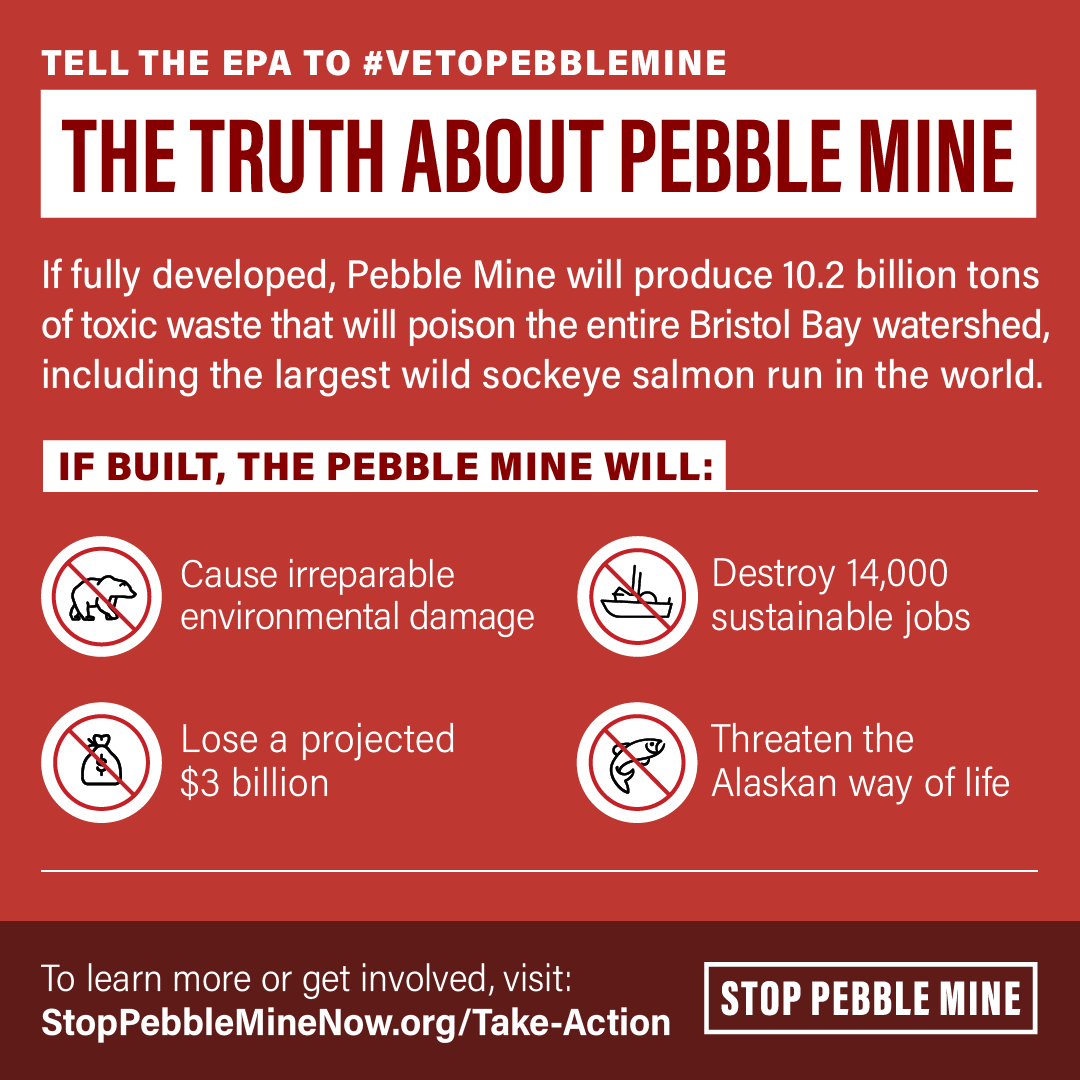
We have always known Pebble’s 20-year mine was a farce and now the preferred option is a route that would allow for continued operations for decades and decades.
Several land owners along the northern route, including the Bristol Bay Native Corporation, strongly oppose the proposed Pebble mine and refuse to grant Pebble access across their property.
The Army Corps’ late-in-the-game route preference change presents new many legal and logistical concerns and threats and demonstrates the lack of transparency and true engagement with local people who have said over and over that they do not want this mine.
Pebble tries to buy local support
Pebble released a “revenue sharing” plan for residents of the Bristol Bay region in an attempt to buy local support.
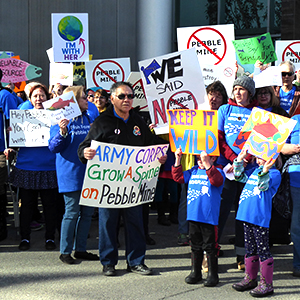
Bristol Bay leaders responded with a scathing rebuke, calling the action “a clear attempt to create the illusion of local support by promising potential future dividends from a company that does not have the capacity to follow through on their empty promises.”
Pebble’s desperate attempt to exploit people struggling with the health and economic challenges of COVID-19 fits its decade-long pattern of deceiving and manipulating locals, including harassing those who oppose it.
Losing partners, chasing cash
Pebble’s parent company Northern Dynasty has never operated a mine and has no partners. The company spends massive amounts of money on lobbying and PR efforts to sway elected officials and investors, but has lost multiple partners.
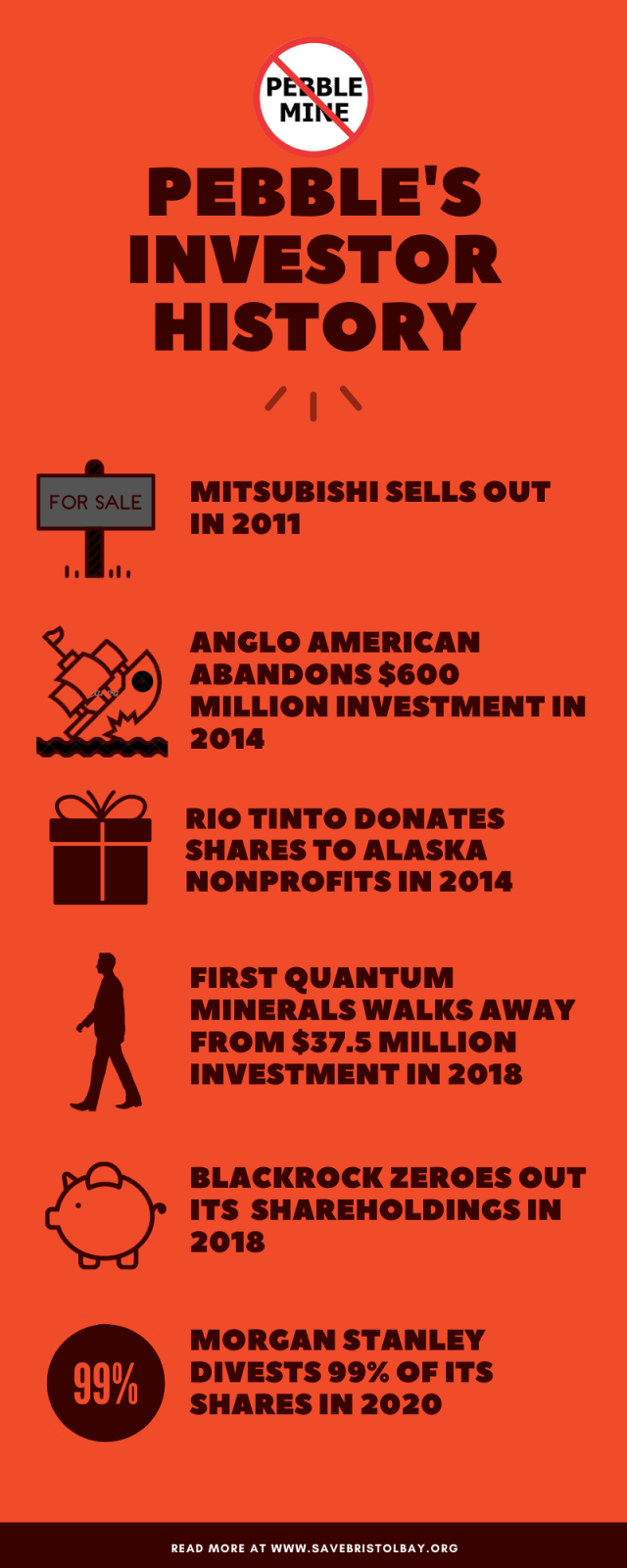
Morgan Stanley dumped over 99 percent of its shareholdings in the project in March. First Quantum Minerals and BlackRock walked away in 2018. Rio Tinto donated its shares to two nonprofits in 2014. Anglo American abandoned its partnership in 2013. Mitsubishi Corporation sold out in 2011.
The New York investment firm Kerrisdale Capital once called the Pebble project fundamentally flawed and not commercially viable.
In May, Pebble announced common share offerings to raise cash and this week said proceeds were over $35 million. It’s a shocking testament to the inequities inherent in the global industrial market that as the people of Bristol Bay grapple with public health and economic crises during the heart of the fishing season, Pebble can generate cash to lobby U.S. elected officials and agencies and woo another investor in the name of profits from a disastrous mine that would devastate Bristol Bay.
Toxic injustice and a seismic hazard
A new report by Earthworks and Mining Watch talks about guidelines to end mine waste disasters. Here’s one of its key points: “Tailings storage facilities must be built and managed only with community consent, respecting human rights and the rights of Indigenous Peoples, adopting the best available technologies and practices.”
Pebble doesn’t even register on this metric. Nor does it address the real concerns voiced by other agencies and organizations about its poor scientific analysis, data omissions, water quality risks, and seismic hazard.
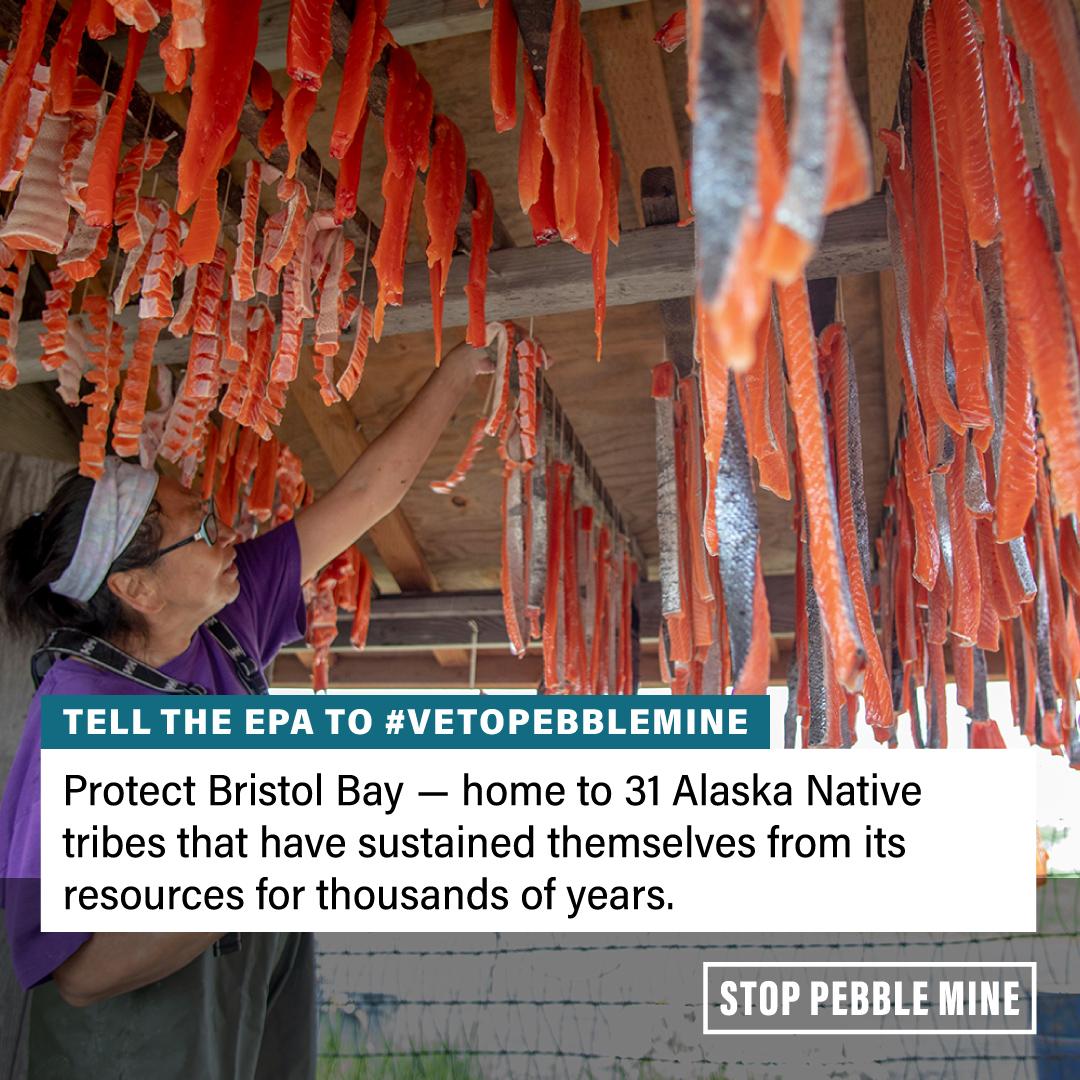
Let’s put it this way: Pebble would put an enormous open pit mine at the headwaters of a vast network of waterways that support five species of Pacific salmon and an array of wildlife that have nourished the Yup’ik, Dena’ina, and Alutiiq peoples of the region forever, and that now feed the world.
Bristol Bay salmon supports the cultures and livelihoods of Alaskans, along with 14,000 fishing job and thousands more in tourism, recreation, transportation, and hospitality.
The proposed Pebble mine would produce over 10 billion tons of toxic waste that would remain on site forever, and threaten an amazing abundance of clean water, healthy fish, nourishing food, sustainable jobs and livelihoods, and thriving cultures.
We have taken Pebble to court before and won. We will do it again. Together, we can stop the Pebble mine forever.


